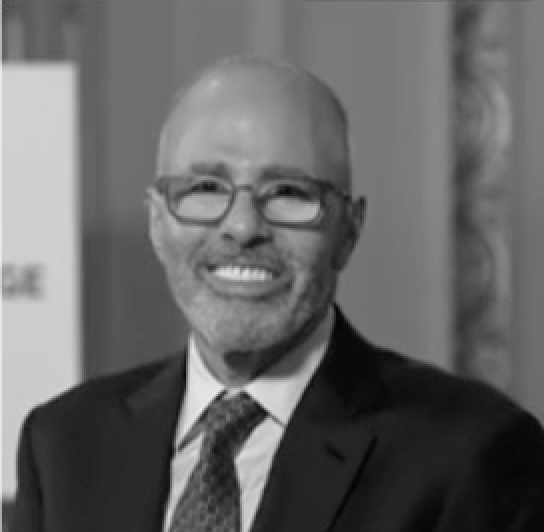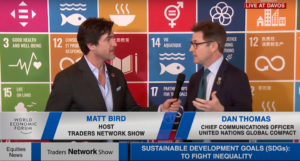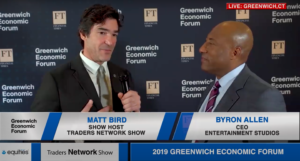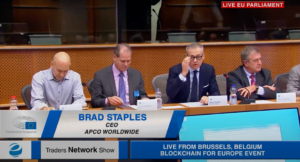CEO and Co-Founder of BurstIQ Says Collaboration is the Key to Wide-Scale Adoption of Blockchain – Converge2Xcelerate
Contributed by: Show Editorial Team
Frank Ricotta, CEO/Co-Founder of BurstIQ and Ed Kim, Editor in Chief of Equities News with Matt Bird at Converge2Xcelerate Conference (Boston, MA)
HIGHLIGHTS
- Blockchain market size expected to reach $58.3 million by 2025
- BurstIQ is the first blockchain company to be accepted into ITA strategic partnership program
- A big topic of discussion: Facebook announces the launch of new cryptocurrency “Libra”
The adoption of blockchain technology is playing out much like the adoption of the Internet, said Frank Ricotta, CEO/Co-Founder of BurstIQ.
“It’s not unlike the Internet adoption cycle where you had some of the surrounding protocols that had to be developed to make it be usable and to really push broad-scale adoption,” Ricotta told Matt Bird, Host of the Traders Network Show, at the 2019 Converge2Xcelerate Conference in Boston. Ricotta was interviewed alongside Ed Kim, Editor-in-Chief of Equities News. “The web just didn’t automatically emerge, and that’s where I think you see things happening now,” Ricotta continued. “It’s really kind of rounding off the rough edges and hiding some of the hard technical sides of blockchain, and making it very usable.”
In the interview, Ricotta and Kim discussed the value of personal data and how blockchain creates ways to monetize it.
Kim stressed that the difference between the adoption of the Internet and the adoption of blockchain has been collaboration among different industries—from economics to healthcare to big tech to government.
“From the very beginning, it’s important to understand how incentives work, how the different silos need to be connected,” Kim said. “How do we interweave these things today? That’s going to be the key to success.”
One example that pointed to necessary intersection was Facebook’s Libra, the cryptocurrency that had been launched prior to the 2019 conference. At the time (Facebook has since scaled back the project), there was debate about if Libra was even a cryptocurrency—unlike, say Bitcoin, it was centralized through Facebook. There was also debate about if it was fair for Facebook to offer users Libra in exchange for access to personal data. On the one hand, Libra could provide currency to the more than 1 billion people around the world who don’t have a bank account. On the other hand, Libra could be seen as a construct developed by Facebook to entice users to share more information.
In the end, Kim and Ricotta agreed, Facebook would face regulatory resistance that would force it to pump its brakes, at least in the U.S. But clearly, government, economics, big tech and other sectors were all at play in the conversation—which ultimately comes back to the idea that technology will only be adopted if it works for the public.
“Constituents are going to drive this,” Ricotta said. “They are going to realize the value of their data, and they are going to tell their congressman that this is something we want you to be interested in.”
(Written by Andrew Waite; Editing and revisions by Nicole Liddy)
PR and Media By: CommPro Worldwide
Links: Original Article
All rights reserved to the Traders Network Show. No part of this publication may be reproduced, distributed, or transmitted in any form or by any mean including; photocopying, recording, or other electronic or mechanical methods, without prior written permission of the publisher, except in the case of brief quotations embodied in critical reviews and certain other noncommercial uses permitted by copyright law. For permission requests, write to the publisher addressed “Attention: Permissions Coordinator”








